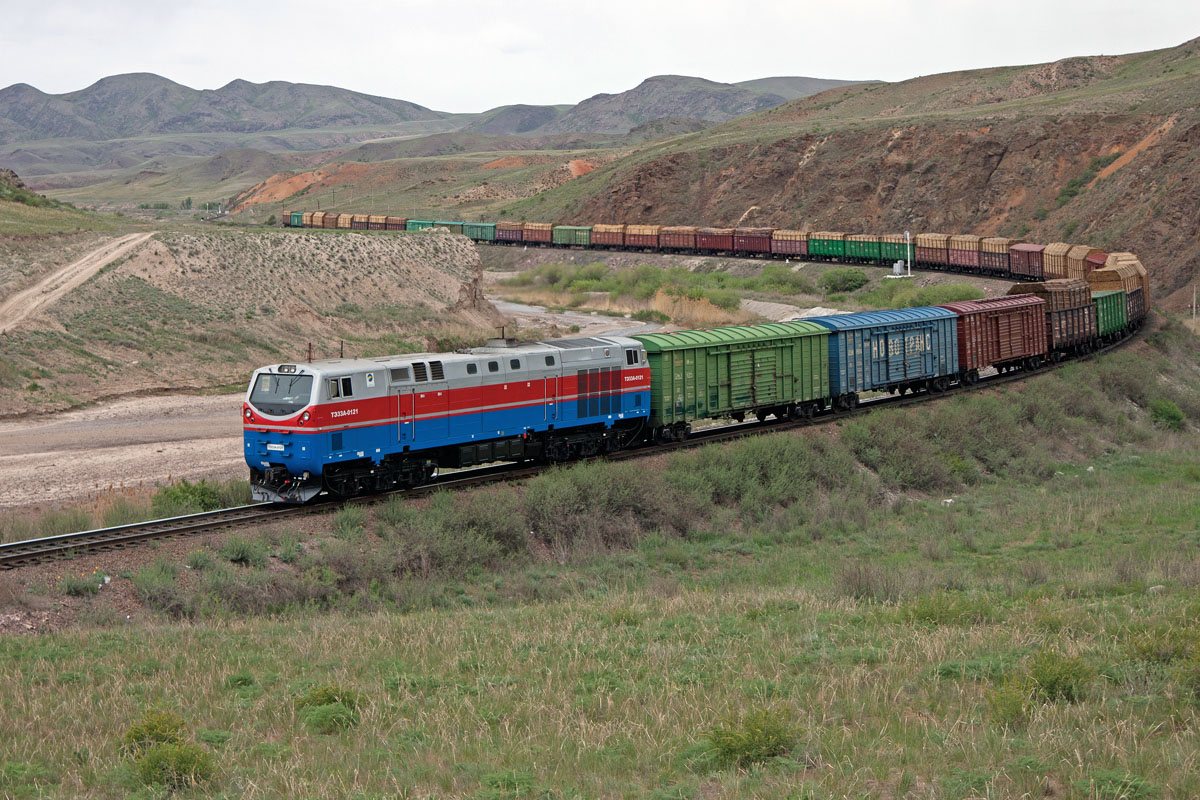Pakistan and Kazakhstan have agreed to expand the Trans-Afghan rail link to enhance rail connectivity to boost transit, bilateral, and regional trade, report several media outlets including the Business Recorder.
A meeting took place on 9 April 2024 in Islamabad between the Federal Secretary Railways and Chairman Pakistan Railways Board Syed Mazhar Ali Shah and the Ambassador of Kazakhstan, Yerzhan Kistafin.
According to the report, Ambassador Yerzhan Kistafin assured the secretary railways of Kazakhstan’s seriousness in connecting with Pakistan and other countries of South Asia with rail link as it was the most viable and trusted means of transportation to enhance trade and people-to-people connections.
During the negotiations, the Pakistani side outlined the ongoing efforts to attract foreign investors for the rehabilitation and expansion of the country’s railway networks.
Syed Ali Shah expressed keen interest in enhancing cooperation between Kazakhstan and Pakistan, emphasizing the potential to elevate bilateral and regional trade relations to a new height.
Ambassador Kistafin welcomed the designated approaches, emphasizing the need to strengthen the dialogue, both within the framework of the Joint Working Group on Transport and Regional Connectivity and directly between the railway bodies of the two countries.
On July 19, 2023, Pakistan, Uzbekistan, and Afghanistan signed a joint protocol to connect the Uzbek rail network with Pakistan Railways. The route for this connection will pass through Termiz in Uzbekistan, Mazar-i-Sharif, and Logar in Afghanistan, and culminate in Pakistan via the Kharlachi border crossing in Kurram District and reach District Kohat where already Rail link exists.
Uzbekistan estimates that the 760km railroad is expected to reduce delivery times of cargo between Uzbekistan and Pakistan by about five days. At the same time, the cost of goods transport would also be reduced by at least 40 per cent. It has been estimated that the project would be completed by the end of 2027 and trains could be able to carry goods up to 15 million tons yearly by 2030.
The three countries have already signed a roadmap strategic plan to construct a new 573km Trans-Afghan railway that will connect Central Asia with ports on the Arabian Sea. The agreement provides for conducting a joint expedition to survey the route and its terrain as well as a preliminary feasibility study for the project.
* * *
nCa reported on 8 April 2024 that the railway authorities of Kazakhstan and Uzbekistran have joined hands to established a joint venture. One of the intended purposes of the new entity is to work together to build the Trans-Afghan railway line that will connect the Uzbek (and Kazakh) railway systems through a railway line traversing Afghanistan to reach Pakistan and subsequently the open seas.
Kazakhstan, Uzbekistan join hands to bolster railway connectivity with China, establish Central Asia – South Asia rail links
The decision was taken during a working meeting between the presidents of the two countries in Khiva city of Uzbekistan on 5 April 2024.
The sides also agreed to build cargo terminals at the Kazakh-Chinese border and in Uzbekistan.
The Trans-Afghan railway project, first suggested by Uzbekistan in December 2018, proposes to extend the Afghan rail network from Mazar-e-Sharif to Kabul and then to Paktia province, reports Ariana News.
In Pakistan, goods will be transferred to the Pakistan rail system and shipped to the seaports of Karachi, Gwadar, and Qasim, reports Amu News.
The railway connection between Uzbekistan and Afghanistan already exists in the shape of the Termez-Mazar-e-Sharif railway line that is being upgraded to facilitate the movement of about 10 million tons of cargo a year. The current capacity is 4 million tons a year.
Meanwhile, Turkmenistan and Afghanistan have recently agreed to build the Torgondi-Herat railway line. The feasibility study is being prepared for the project.
In March this year, the railway authorities of Uzbekistan and Turkmenistan met in Ashgabat and signed a memorandum of understanding. /// nCa, 11 April 2024
